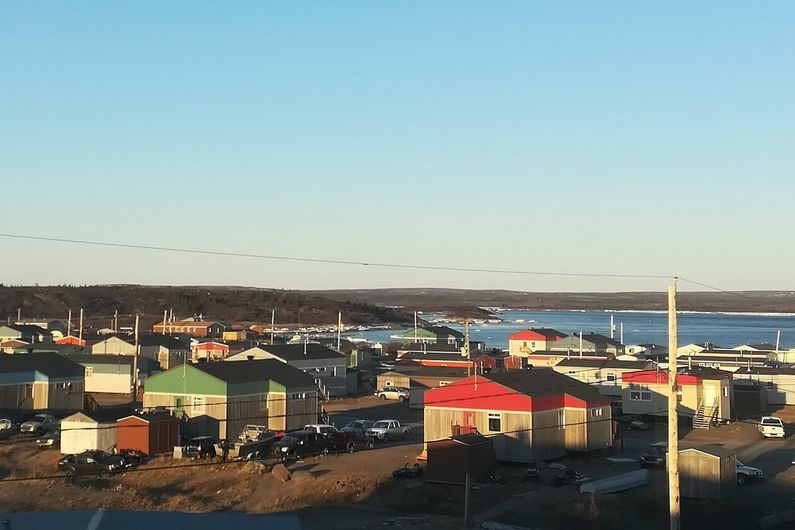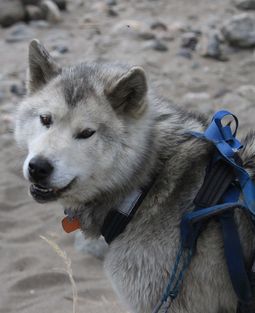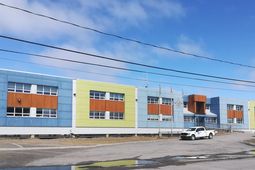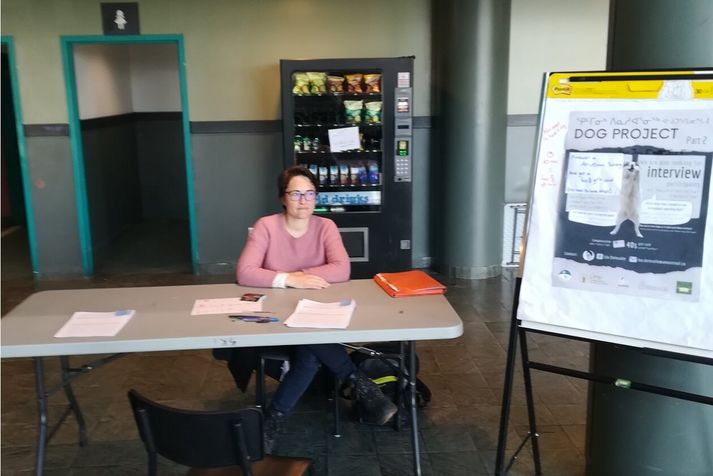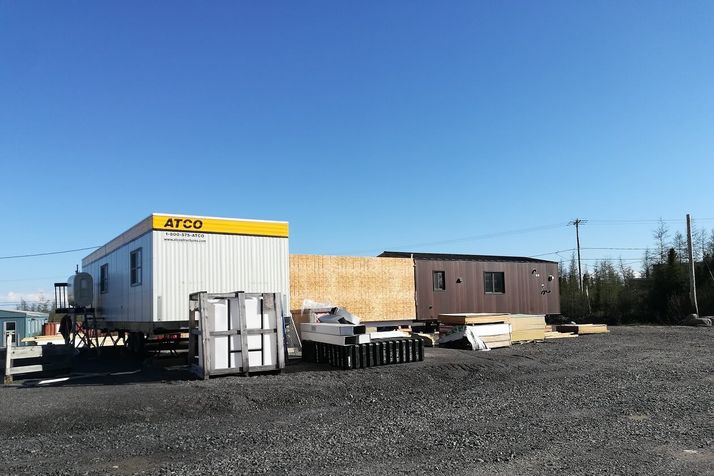Permanent veterinary services coming to Kuujjuaq
- UdeMNouvelles
07/18/2022
- Martin LaSalle
Doctoral student Léa Delesalle travelled to Kuujjuaq to document the impact of a program aimed at improving human cohabitation with canines in the northern Quebec community.
Dogs have been part of the everyday lives of Inuit people for generations. Today, the size of the canine population in Inuit communities calls for improved care in order to prevent bites and rabies outbreaks, control reproduction, and deliver other health benefits.
To help meet the need, a large-scale research program has been underway across five Inuit communities for several years. Informed by the participatory One Health approach, it aims to improve both canine and human health by preventing incidents and disease.
The program has been developed over the last few years by Professor André Ravel and his colleagues at the University of Montreal’s Faculty of Veterinary Medicine, in collaboration with the Government of Quebec and partners from Kuujjuaq’s Inuit community.
Based on the data gathered thus far, a full-time veterinarian was hired for Kuujjuaq in 2020.
First fieldwork since the outbreak of the pandemic
Léa Delesalle, who is pursuing her Ph.D. under Ravel’s supervision, recently returned from a stay in Kuujjuaq, where she assessed the program’s implementation and effectiveness.
“I’d been to some of Quebec’s northern communities in the past, but this was my first visit to Kuujjuaq,” she recounted. “The program there had been stalled by the pandemic for two years. Our team’s assignment was to reconnect with the on-site partners, many of which have changed.”
Delesalle analyzed decision-making processes and the mechanisms behind the effects of the already established intervention methods. She also met with key players and conducted a survey of Kuujjuaq residents and program partners.
The task, however, proved to be more difficult than expected.
“You have to earn people’s trust, because they’re used to seeing academics come and go without really bringing the community any practical benefits in the short term” she said. “Also, during the summer, many people go fishing and hunting outside the village.”
While she wasn’t able to collect the 150 completed questionnaires she had hoped for, Delesalle did conduct many interviews with residents who reported the observed changes—or lack thereof—with the village’s dogs over the last two years, shared their experience with veterinarians, and discussed their participation in the program’s other activities.
“I was also able to meet many program stakeholders, which will allow me to better understand their respective roles and the obstacles they have faced throughout the program’s implementation,” she added.
Toward permanent veterinary care
The fieldwork by Ravel’s team is the culmination of over eight years of research in collaboration with local partners and is part of a large-scale program to improve the health of dogs and humans in the region.
Delesalle’s assessment of the program will be used to improve it and to support Kuujjuaq’s grant applications to extend the program.
“More broadly, my research will help identify key elements of a sustainable, socially acceptable and effective action plan to improve both human and canine health in Canada’s northern Indigenous communities,” she said. “It will also shed light on facilitating factors and obstacles to the action plan’s implementation that need to be considered. It will enrich our still-scant knowledge of how to apply One Health principles to human-dog relationships in this particular environment.”
Kuujjuaq’s first permanent veterinary clinic
On the program’s heels, Kuujjuaq’s first permanent veterinary clinic is under construction and should be operational in 2023, thanks to a partnership with Société du Plan Nord.
The clinic will offer a range of services such as vaccinations against rabies and other infections, and spaying and neutering to curb dog overpopulation. It will be equipped to perform surgeries.


